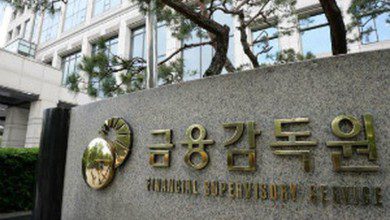
According to Naver News and Chosun Biz, the Coinrail exchange from South Korea was barred from making deposits in banks in the country as recently as 2 months ago in light of money laundering accusations. The exchange experienced a cyber attack last weekend which resulted in millions of dollars in coins being stolen and sent to this wallet. The revelation about their deposit capabilities may shed more light on the causes of the recent cyber attack and further force the hand of the Korean government to issue solid legislation on the blockchain industry in the country.
Several months ago, it turned out that bank officials across the country found suspicious transactions on Coinrail’s books. Some banks decided to avoid dealing with the exchange for fear of being implicated in wrong-doing themselves. One bank official stated yesterday that the suspicious transactions were discovered in February and that those banks decided to suspend Coinrail’s deposit capabilities in April of this year. At the time, government financial authorities made it mandatory via government organizations for commercial banks to investigate on their own the books of virtual currency exchanges, especially those suspected of money laundering. The money laundering issue has been at the forefront of concerns regarding the regulation of cryptocurrencies nation-wide and around the globe.
Yoojung Kim, reporter for Chosun Biz, states that no specific reason has been issued by commercial banks for their official suspension of Coinrail’s deposit capabilities. It is known, however, that According to the ‘Financial Transaction Reporting and Use Act (Special Act)’ and ‘Virtual Currency Anti-Money Laundering Guideline’, if a virtual currency exchange does not use the real-name deposit / withdrawal account service, banks can refuse the transaction. This rule is self-imposed by the non-government organization concerning blockchain in the country. The real-name deposit system was swiftly put in place earlier this year in order to put a stop gap on possible money-laundering activities by users of exchanges across the country. Before this system was in place, users could have multiple accounts and make deposits to any number of various bank accounts they specified for each trade.
Coinrail is a relatively small exchange by Korean standards, barely making the top 100 in the world by volume of trades. Volume is so low on some coins that even a moderate purchase or sale of a coin may significantly affect price. Certainly the recent cyber attack had a significant effect on the global market as upwards of $40mil was stolen off the exchange last weekend. The attack shook investor confidence in a current fragile bull market. The exchange has eschewed responsibility for the attack currently, but investigation is now underway to determine if the attack was a hacker or a supposed malfunction of their servers. The likelihood that this attack was perpetrated by a hacker is decreasing, but is still possible.
The Korean government needs to efficiently find a solution to the matter of virtual currency trade regulation. While the recent cyber attack is still being called a hack and not something more nefarious, it represents the third hack to occur in the country after two Yubit platforms were hacked. It is expected that when the country issues regulations, those regulations will apply to all Korean citizens no matter where they live. For example, gambling and illicit drug use is strictly prohibited for Korean citizens regardless of what country they are in. The same principle may very well apply to cryptocurrency trading.
image from navernews (previously cited article)




